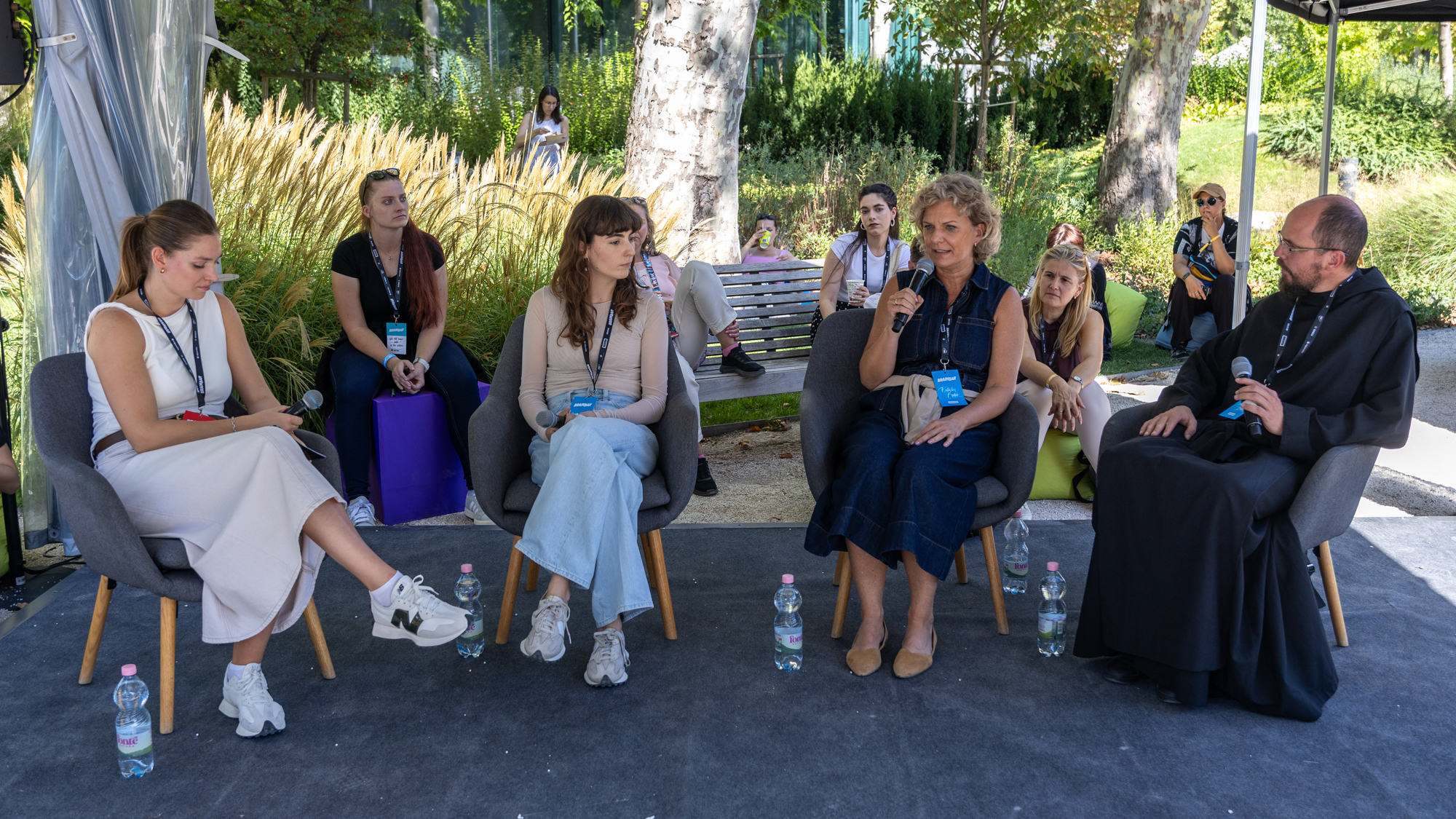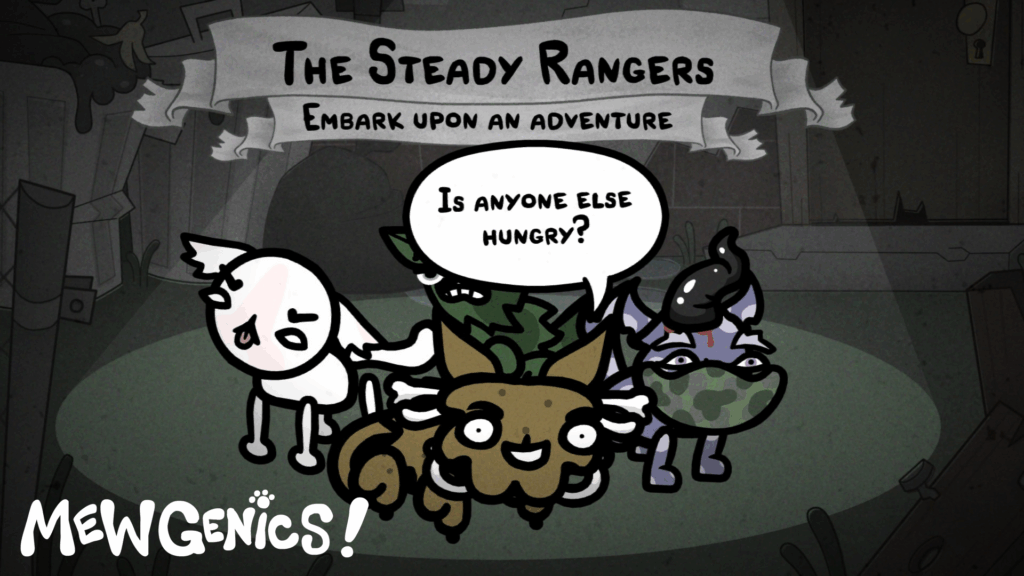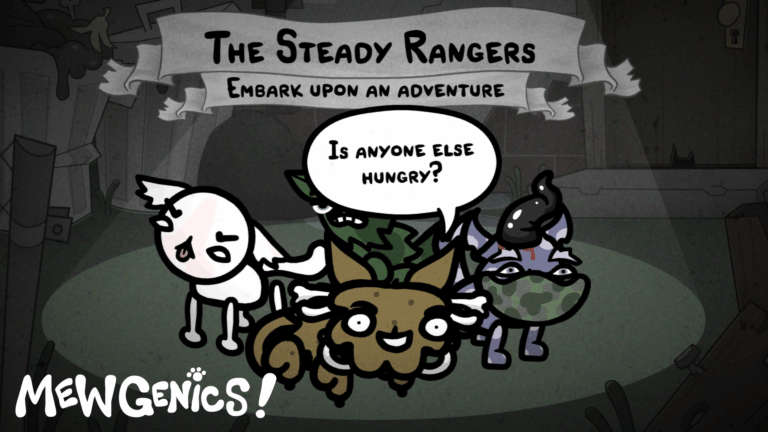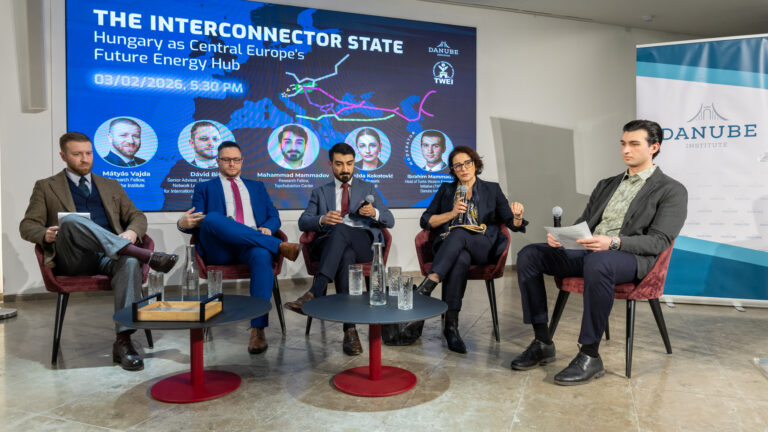The discussion Are We Becoming More Lonely? gathered three very different voices on stage: a corporate HR director, a school psychologist, and a monk. Their diverse perspectives reflected just how wide-reaching the issue of loneliness has become in modern societies.
For Katalin Erdei of Richter Gedeon, urban life itself is a paradox: ‘We live closer together than ever before, yet often feel more isolated.’ In education and in the workplace, she argued, people are rewarded for individual performance rather than cooperation. The result is an increasing reliance on self-sufficiency, which erodes the skills of asking for and offering help.
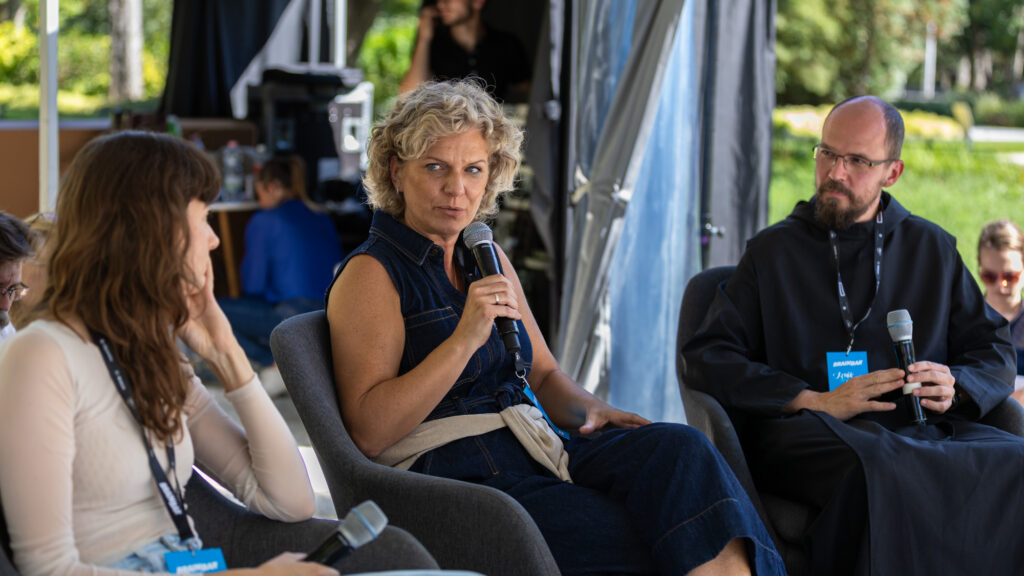
Benedictine monk Izsák Baán placed the problem in a broader cultural and spiritual context. Quoting C S Lewis’s The Great Divorce, he contrasted our consumer culture’s instant gratifications with the deep, costly investments required for real relationships. ‘A true friend or a life partner is not something you can simply “collect” like a product. Connection requires work, sacrifice, and readiness to give, not just to take. And we are less prepared for that today.’
School psychologist Virág Varga linked loneliness to the spirit of the age, which encourages self-realization and independence at the expense of shared goals. Social media, she argued, magnifies the illusion of connectedness while concealing real isolation. ‘We put walls around ourselves through the images we project. Behind them, many feel unseen.’ For her, loneliness is not simply about being alone but about the gap between the relationships we desire and those we actually experience.
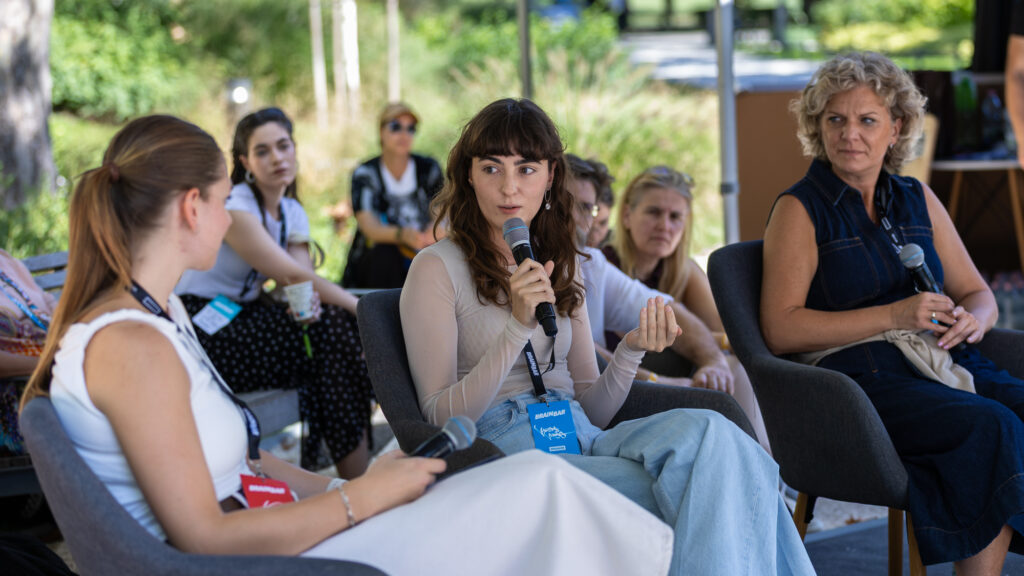
When asked how they counteract loneliness in their own spheres, the panellists offered practical answers. Erdei emphasized the responsibility of leaders in companies: ‘A team must be responsible for each other. Simple gestures, asking who helped you today, or who you helped can strengthen bonds.’ She noted that since the pandemic, employees increasingly expect workplaces to support personal as well as professional wellbeing.
Varga described how ‘microcultures’ in classrooms can make inclusiveness a norm. Non-judgmental listening, she said, allows students to feel recognized beyond their academic performance. Often, one student who dares to seek psychological help inspires others in the same class to follow.
Baán stressed that monks are not lonely but live within a highly structured communal life. ‘We renounce certain forms of intimacy, but never intimacy itself.’ Weekly meetings to share personal experiences, group walks, and even common leisure activities help monks stay connected. For young people, he suggested, monasteries and pilgrimages can act as ‘third places’ beyond school and work, offering genuine community without institutional pressure.
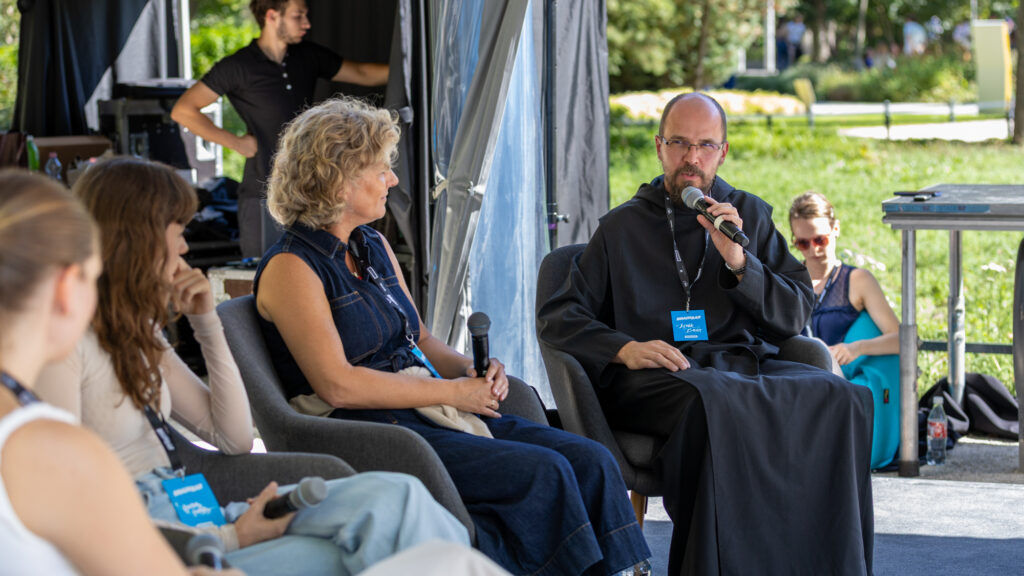
The conversation turned to how schools and workplaces shape or hinder community. Varga criticized school environments designed purely for instruction, not for bonding: ‘Desks in rows don’t build relationships. We need spaces where people can sit together, where shared experiences are possible.’ Erdei shared examples of company wellness programmes and sports activities that unexpectedly became lasting peer groups.
Defining when a group becomes a true community, the speakers highlighted different dimensions. For Baán, it is about staying with others even when it is inconvenient: ‘The first sign of civilization was a healed bone, proof that someone stayed to care for the injured.’ Erdei pointed to trust and long-term commitment, while Varga underlined the role of shared goals and values, such as those found in sport or common struggles.
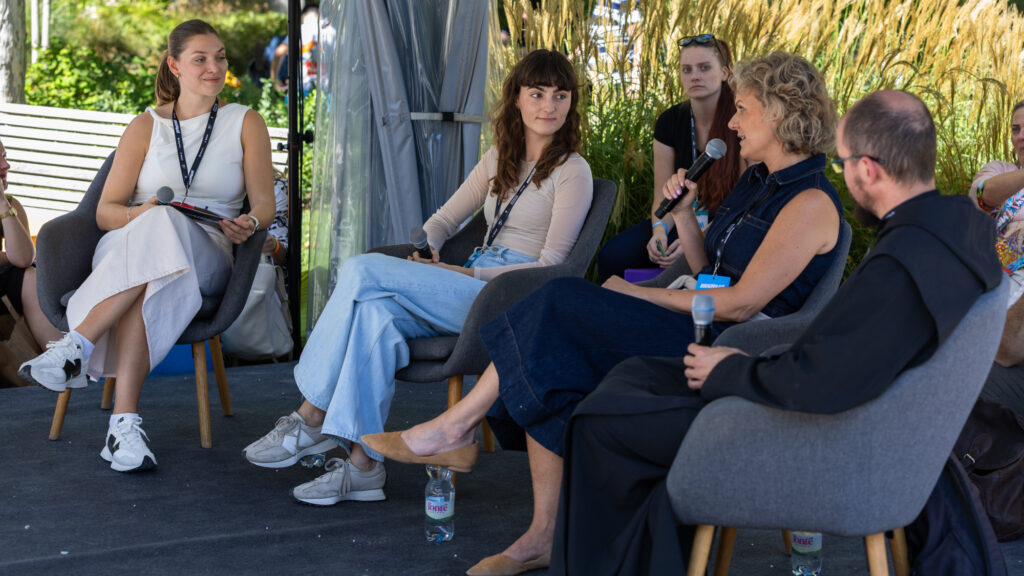
Finally, they discussed what individuals can do to help others find belonging. Erdei lamented the decline of initiative, with fewer people willing to organize activities. Baán encouraged authenticity: ‘Live in a way that makes others want to join. Don’t pressure, but make the invitation clear.’ Varga advised persistence and openness: finding the right community often requires trial and error, and rejection should not be taken as personal failure.
The panel closed on a hopeful note: while loneliness is indeed a growing challenge, it is not insurmountable. Through conscious effort, whether in schools, companies, monasteries, or everyday social circles, people can cultivate spaces of trust, mutual care, and belonging.
Related articles:

